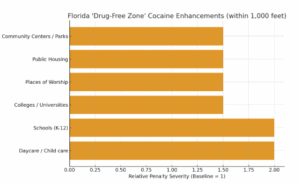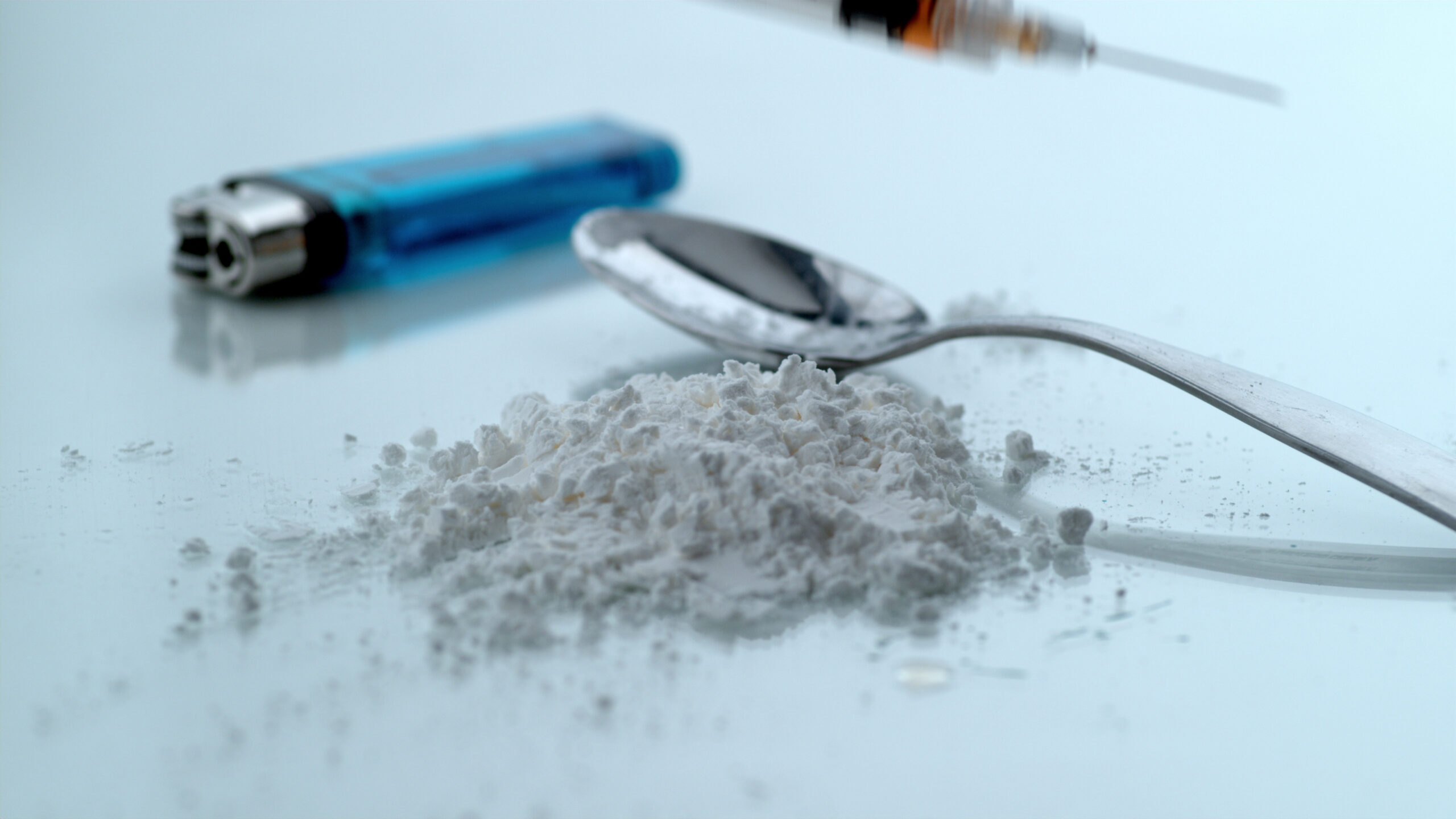What you need to know:
If you were arrested for delivering cocaine within 1,000 feet of a daycare, school, or other protected place, you face enhanced penalties under Florida law. Prosecutors must prove every element — including distance and whether the property legally qualifies. These are details a strong defense lawyer can often challenge.
What this charge really means
Florida Statute §893.13 makes it a felony to sell, deliver, or possess with intent to sell or deliver cocaine. The penalties are more severe if the alleged conduct happened within 1,000 feet of certain protected places.
Which places count under Florida law?
The 1,000-foot enhancement isn’t limited to daycare centers. Florida law defines several “drug-free zones,” including:
- Daycare / Child care facilities: Licensed under §402.302, these are businesses that care for more than five unrelated children and are licensed by the state.
- Schools: Elementary, middle, or high schools. The law applies during school hours, at school events, or anywhere on property used for education.
- Colleges and universities: Postsecondary campuses and buildings used for instruction, student housing, or official events.
- Places of worship: Churches, temples, mosques, or any location regularly used for religious services.
- Public housing facilities: Housing complexes owned or operated by government housing authorities.
- Community centers / parks: Publicly owned recreational facilities, like community gyms, playgrounds, or centers where youth activities are held.
These areas are protected because lawmakers want to discourage drug activity near places where children, families, and vulnerable people gather. But the State must still prove the property qualifies and that the distance is accurate.
Penalties if convicted
Delivery of cocaine is a felony. If proven within 1,000 feet of a protected place, the penalties increase sharply — longer prison exposure, more probation time, and higher fines. These cases often start as second-degree felonies but can carry first-degree felony penalties depending on the circumstances.
How the State must prove “within 1,000 feet”
- Distance: Law enforcement must show the exact measurement, usually with maps, survey tools, or GPS.
- Property status: The location must legally meet the definition (e.g., a school must be an operational, recognized educational facility).
- Timing: For schools, the statute specifies school hours or events. If the activity happened outside those times, the enhancement may not apply.
Defenses that can work
- Challenging measurements: If the State’s mapping is sloppy, the 1,000-foot rule may fail.
- Questioning definitions: For example, not every child-related business is a “daycare” under law.
- Reclassifying charges: If the facts show possession (not delivery/intent), penalties can be significantly reduced.
- Suppressing evidence: Illegal searches, Miranda violations, or bad use of informants can get evidence thrown out.
Florida drug-free zones chart
Below is a visual overview of Florida’s main “drug-free zones” and how they increase penalties for cocaine delivery cases.

Florida law increases penalties for cocaine delivery within 1,000 feet of these protected places.
This chart shows some of the places that Florida law treats as drug-free zones under Florida Statute §893.13. If prosecutors claim a cocaine delivery (or intent to deliver) happened within 1,000 feet of any of these locations, the penalties can be much harsher than a standard drug case.
For example, being accused of selling or delivering cocaine in a normal setting might carry a certain penalty range. But if the same conduct is alleged near a school, daycare, or church, the charge becomes an enhanced felony with longer possible prison terms and higher fines.
The chart doesn’t represent exact sentencing scores — every case depends on your record, the facts, and how prosecutors file the charge. Instead, it shows how Florida law treats these zones as “higher-risk areas”, which is why the penalties can be one and a half to two times as severe.
That’s also why it’s so important to carefully review whether the property really qualifies (for example, whether a building legally counts as a daycare or community center) and whether the police measured the distance correctly. These details can make or break the State’s case.
What to do next
If you or someone you love is facing this charge, don’t talk about the case with friends or on social media. Preserve evidence that may help (texts, GPS history, or surveillance). And contact a defense attorney immediately — early action can make all the difference.
Frequently Asked Questions
Does the State have to prove I knew I was near a protected place?
No. Prosecutors only need to prove the location and distance, not your knowledge. That’s why definitions and measurements are key defense areas.
Can the charge be reduced?
Yes. Many cases are reduced after negotiation, especially if the State’s evidence on distance, property status, or delivery intent is weak.
What if I was just in possession?
Possession carries less severe penalties. If the evidence fits possession better than delivery, your lawyer can fight to downgrade the charge.
Talk to a Florida drug defense lawyer
Our team includes board-certified criminal trial lawyers who know how to challenge distance, location definitions, and police procedures. We fight for the best possible outcome in every case.
Related Florida Drug Crime Resources
- Drug Crimes & Possession (Overview)
- Cocaine Possession in Florida
- The Knowledge Element in Drug Cases


